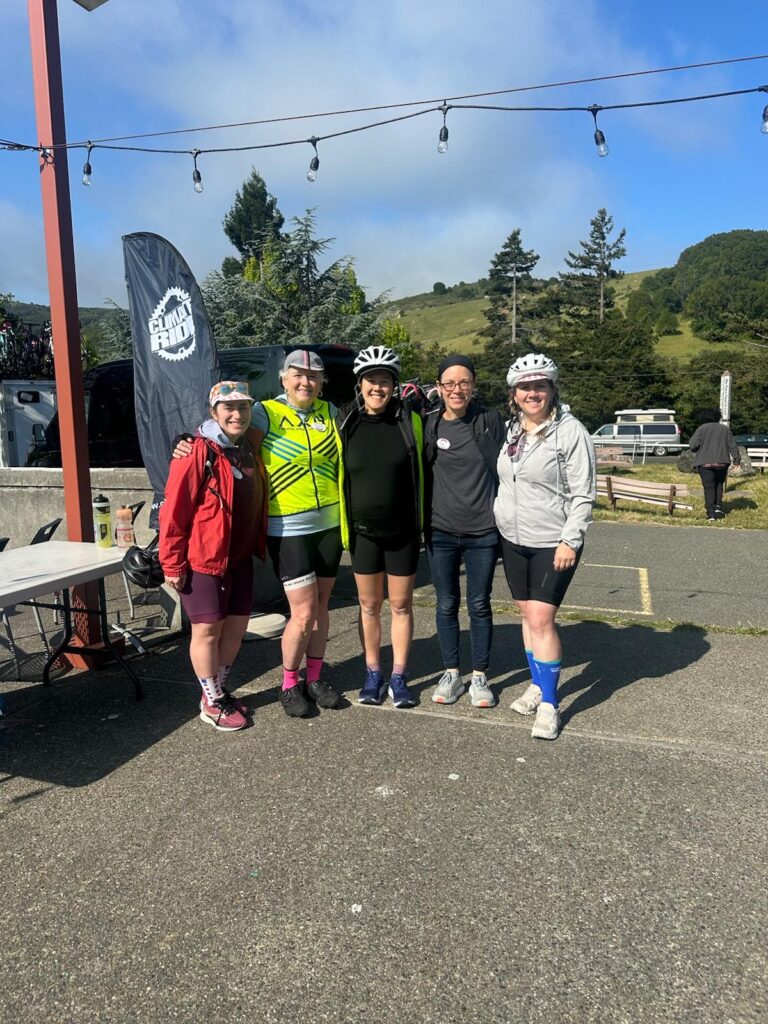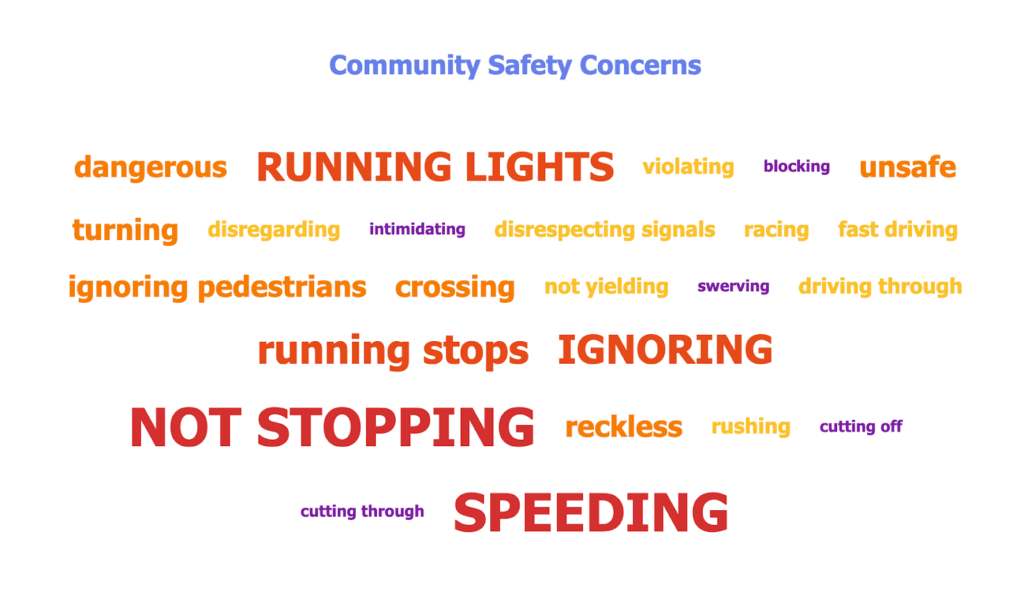This is a guest post from one of our Board Directors, Alyssa Cheung, on her experience riding in the Green Fondo Climate Ride.
During my first pregnancy, I struggled with what felt like a loss of my identity – as someone who is very physically active, I quickly became uncomfortable surfing, running, and biking – the activities that help me thrive. My husband and I also just moved to the far southwestern corner of the city and resolved to drive less, so we hopped on the electric bike (e-bike) train. This ended up saving my sanity, and I unintentionally adopted a new identity as an e-bike mom. Being a cyclist and a parent has brought countless moments of joy while raising my now-toddler, while sharing biking adventures across the city, and I’ve also been fortunate to find new communities that also share these interests.
Last January, I had the opportunity to step into this e-bike mom identity in a new way. My best friend asked if I’d consider riding the Green Fondo Climate Ride with her. I had already contemplated joining Team SF alongside my fellow board members and had wanted to do a Climate Ride for several years, but was hesitant because I had just found out I was pregnant again. I waffled for a few days, until I found out that e-bikes are allowed – now, I really had no excuse. I was nervous about showing up to the ride as the lone cargo e-biker in the midst of hard core lycra-clad road cyclists. I finally decided to register, in large part because I wanted to be able to tell my daughter that I was still capable of doing things I cared about, even while pregnant.
The Green Fondo was a small action I took to feel like I was doing something tangible to make life better for my kids’ generation. I’m a natural worrier, and the two thoughts that keep me up at night are the thought of my kids getting hurt while walking or biking in the city, and how my kids will cope with the catastrophic effects of climate change. (One wonders how I ever manage to sleep.) While I try to play a small part in addressing both of these issues, both in my day job in energy policy and my volunteer work with SFBike, the Green Fondo was a chance to combine my interests and literally bring my kids along for the ride.
The ride itself was a true showcase of the best of Northern California. The scenery was just as one would imagine – breathtaking, verdant, charming, wild. The wind was particularly strong both days, making the feat all the more challenging and impressive, especially at the end of the first day when the final stretch included a long, steep hill before returning to camp. The ride offered me moments of comradery and also opportunities for quiet reflection. My husband brought my toddler along to meet us along different points, including a breakfast stop at Point Reyes Station. My daughter beamed when she saw me, proceeded to feed me a blueberry pancake she had saved me, then told me she’d meet me at the finish line. I loved that she got to participate in the event with me, even peripherally.

But the real reward of the whole event was the sense of community that grew out of the ride, both leading up to and during the event. I was touched by the many friends and loved ones who expressed enthusiastic support and gave generously for the ride and the causes I was supporting: safer streets for families in San Francisco. And my fear of being that lone non-lycra rider? That was quickly dispelled during check-in, when I saw that there were riders of all ages, abilities, and backgrounds. I loved riding with Team SF and seeing familiar faces throughout the day. The Climate Ride strives to be a truly inclusive event, and I felt that time and time again throughout the weekend.
While my 3-month old and toddler might be a little too small at the moment, I’m looking forward to the day when I can bring both of my daughters on another Climate Ride with me, or perhaps watch them complete a ride while I wait for them at the finish line with fresh blueberry pancakes.
Inspired by Alyssa’s story? You, too, can join the Climate Ride. Join Team SF for the 2026 Green Fondo Climate Ride May 15-17. Reach out to Team SF Captain Matt Biggar (mtbiggar@gmail.com) for more information.
P.S. Registration fees before January 15 are only $75!

